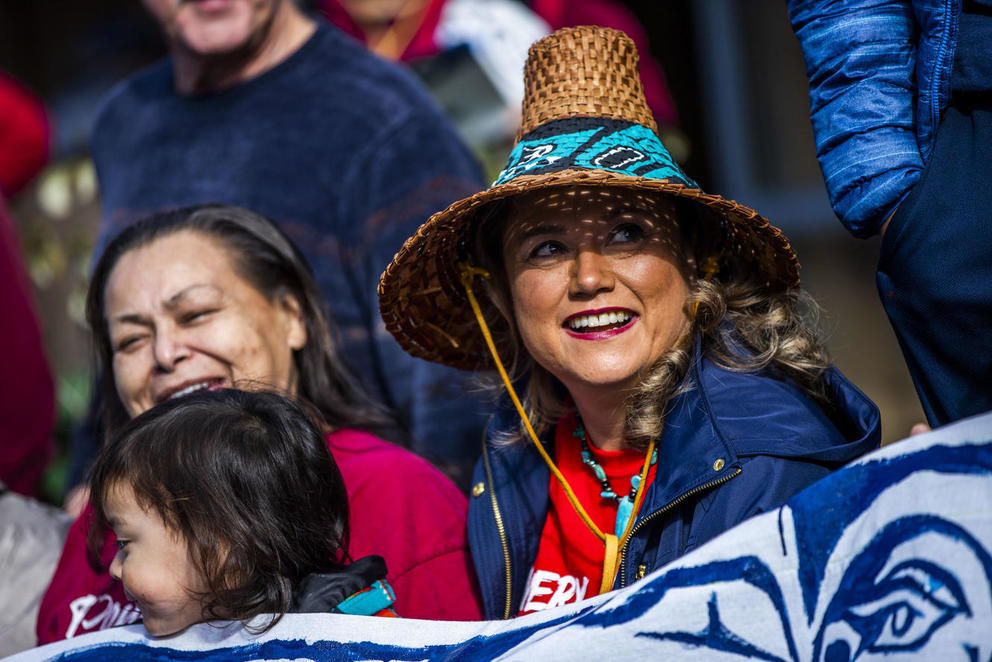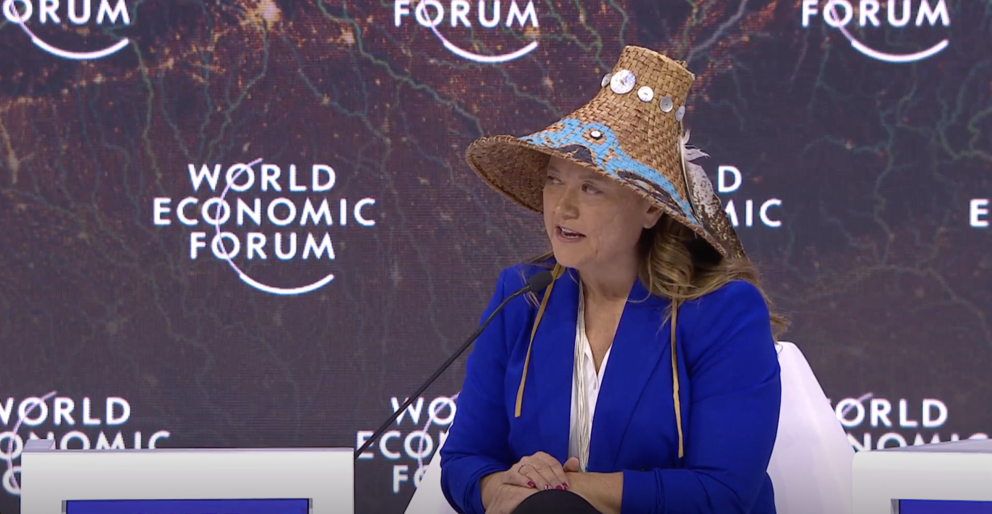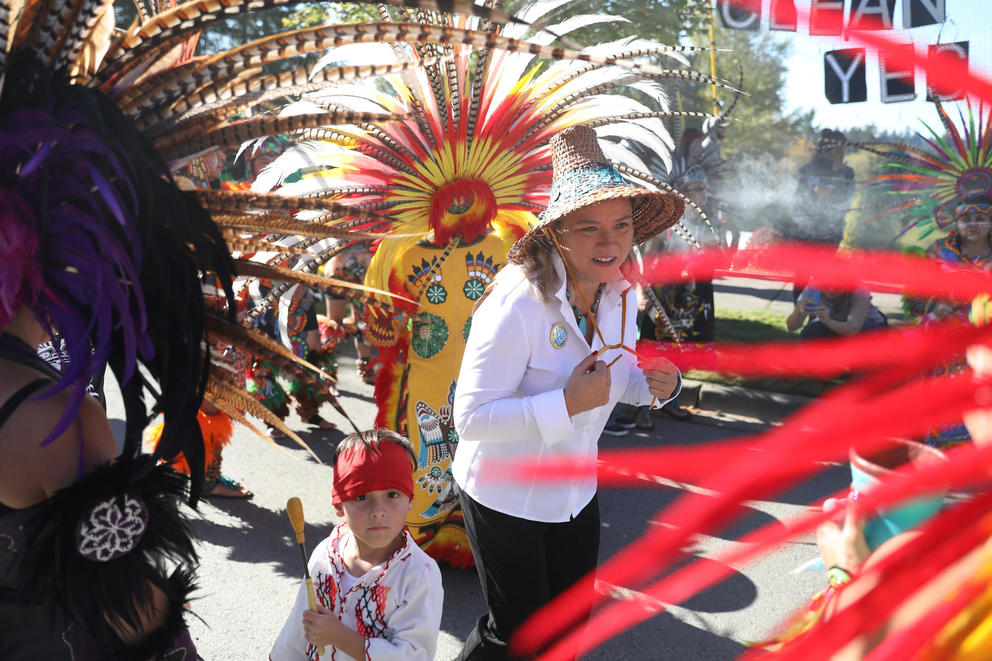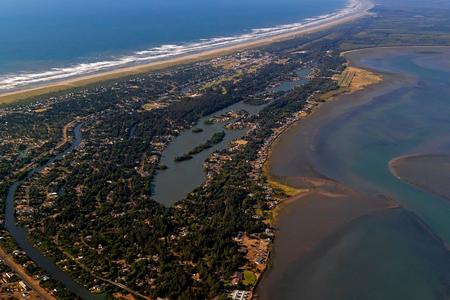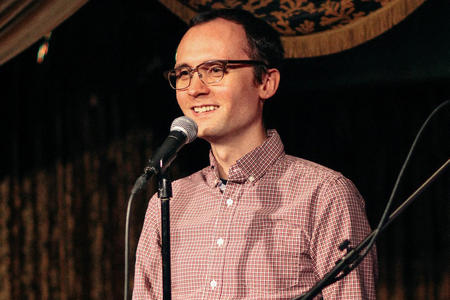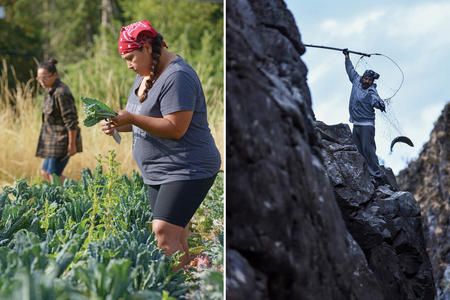“The very place where my ancestors signed our treaty is now underwater, and we are not alone,” she said. “Indigenous peoples all across the planet are on the front lines.”
More than 3,000 leaders from government and business participated in the World Economic Forum. A new report was released by the forum, “Embedding Indigenous Knowledge in the Conservation and Restoration of Landscapes.” That report found that Indigenous communities are already a part of the solution.
“Evidence shows that Indigenous custodianship, where it’s been able to be maintained, has a direct benefit to the environment,” the report states.
About 32 percent of the world’s mappable territories are still owned or governed by Indigenous people and local communities. Of that, 65 percent are considered in good ecological condition. “That is to say, they have zero to low levels of human modification,” the report states.
Nearly all of the lands maintained by Indigenous peoples and local communities, about 91 percent, are in good or moderate ecological condition, according to the report.
Sharp said that Indigenous people reflect that optimistic future.
“When you look at the scale of that crisis,” she said, “one might think that we are weak and vulnerable. But I want to make it very clear here today. To the contrary, we are strong, we are resilient. We have in our DNA ancestral knowledge that goes back from that very first generation that was called to planet Earth.”
Sharp was followed by former Vice President Al Gore, who said the climate crisis continues to get worse at rates faster than the solutions that are being proposed.
Gore cited Sharp’s support for a Washington state green-energy initiative that would have had a transformative impact on fossil fuels.
“You've had problems in your area where you tried to get legislation and the oil and gas industry came in and fought you. Right?” he said. “Every piece of pro-climate legislation at the national level, the regional level, the local level, municipal level, the oil and gas industry, and the coal industry, they come in and fight it tooth and nail. And they use their legacy network of political influence and wealth to stop progress.”
He said these institutions have to be reformed “so that the people of this world, and including the young people of this world, can say we are now in charge of our own destiny.”
Sharp told global leaders that there is a connection between sacred lands and the climate.
“I personally have come, in the last four months, face-to-face with sacred sights at Oak Flat [Arizona], entering that sacred place where the San Carlos Apache people leap to their death. And I felt the thunder,” she said. “I've been at Cheyenne and Arapaho and offering prayers, and we were surrounded by 800 buffalo, and we could feel them, we could feel their energy. And we are taught the salmon cannot get out of the ocean to defend themselves in court and in lawsuits, but we are their voice and we are their guardians, and we have that sacred duty.”
She said it’s important to look at the science and then make the connection to the political decisions.
“Do not look at decisions as a cost of business. Look at decisions as human existence and our relatives' existence for generations to come.”
The Forum’s report also cited Indigenous ceremony as a support system. “It is vital to understand that culture and ceremony are not only a process of encouraging a generational sense of responsibility to preserve and care for the landscape, but the very practice of such activities has a direct effect on enlivening and supporting the landscape.”
The report is written for investors.
“There is no viable pathway to keep the 1.5-degree climate target alive without protecting, restoring and managing nature,” the report states. “As such, investors are increasingly exploring nature-based solutions as a way to sequester carbon dioxide and generate an investment return, with these investments having the potential to achieve 30% of the Paris Agreement goals.”
The idea of mixing business and climate policy is controversial. The report cited complaints about “greenwashing” or investments that are designed to mislead markets and the public about reducing fossil-fuel emissions or other nature-focused solutions.
Nonetheless the Forum’s report said: “Future investment in nature-based solutions would need to at least triple in real terms by 2030 to over $536 billion each year, if the world is to meet its climate change, biodiversity and land degradation targets.”
Yet that’s one thing missing from the discourse about “business” and Indigenous rights, namely business. There is a case to be made, which goes beyond greenwashing, that a respect for Indigenous rights is essential to the profitability of companies.
Moira Birss and Kate Finn make “The Business Case for Indigenous Rights” in a report for the Stanford Social Innovation Review. The authors conclude that risk is a critical concern for companies operating in Indigenous communities. “The failure to respect Indigenous and tribal peoples’ rights exposes companies and their investors to pervasive legal, political, reputational, and operational risks," Birss and Finn wrote.
The authors cite Standing Rock as an example. Energy Transfer Partners stock declined because of its failure to listen to the tribe and community.
“After they organized socially responsible investors and met with various financial institutions, several European banks pulled their financial commitments from the pipeline,” Birss and Finn stated.
They cite a 2018 analysis by First Peoples Worldwide, a program at the University of Colorado Boulder dedicated to increasing corporate accountability to Indigenous peoples, which found that, despite the initial cost estimate of $3.8 billion, the pipeline cost more than $12 billion by the time it was operational in June 2017, after financial losses accumulated from the long delays in construction due to social unrest and legal proceedings.
“Furthermore, Energy Transfer Partners’ stock price significantly underperformed relative to market expectations, and it experienced a long-term decline in value that continued after the project’s completion,” they state.
Another connect-the-dots moment from the World Economic Forum: fresh water.
Nadar Malhotra, chief executive for the HCL Corporation of New Delhi and one of the few women in the world to lead a technology company, said fresh water is a connecting thread. Most of the disasters across the world are related to water. A “systems thinking” approach to climate change means keeping water at the center of the discussion.
For example: Sharp mentioned the sacred impact of Resolution Copper’s project that would impact Oak Flat. There is also a report sponsored by the San Carlos Apache Tribe that found the project would consume 250 billion gallons of water.
The report’s conclusion: “The proposed Resolution Copper mining project will have permanent consequences for Arizona’s groundwater resources … By pumping billions of gallons of groundwater from the East Salt River Valley, this project would make Arizona’s goal for stewardship of its scarce groundwater resources even more unreachable.”
This story was produced for Indian Country Today on Jan. 21, 2023 and is republished here with permission.

